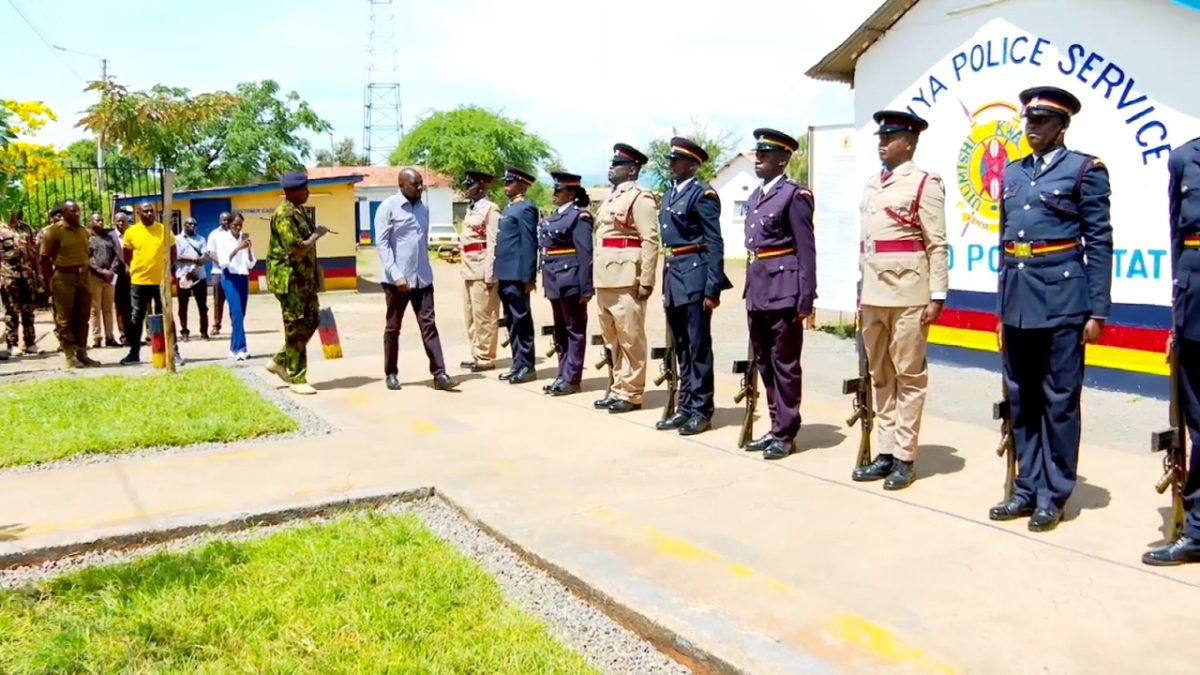Government Reaffirms Commitment to Peace and Security

In a strong statement of government commitment to national security, Interior Cabinet Secretary Kipchumba Murkomen visited Isiolo where he assured police officers and regional leaders of unwavering state support in the ongoing fight against crime and insecurity.
Speaking at Isiolo Police Station before proceeding to a high-level joint security meeting, the CS emphasized the importance of protecting law enforcement personnel from undue criticism and threats. He urged officers to carry out their duties diligently and fearlessly, assuring them that the government would shield them from what he described as “negative witch-hunt.”
Murkomen reaffirmed the government’s determination to root out persistent threats such as banditry, drug trafficking, cattle rustling, and illicit arms trade, particularly in volatile northern counties. He announced that chiefs in high-risk areas would soon be issued with firearms to enhance their capacity to maintain order and respond to threats.
The CS also underscored the importance of regularly transferring officers to prevent stagnation and promote better service delivery. “Policing is not only a job—it is an act of patriotism,” he stated, while urging officers to embrace professionalism and community service.

Police officers from various counties took the opportunity to voice challenges they face on the ground, ranging from logistical constraints to security threats. Their concerns fed into the broader security discussion held later at El-Boran Hotel, where Murkomen joined regional commissioners, police commanders, and chiefs from Marsabit, Samburu, Laikipia, Isiolo, and Meru.

Deputy Inspector General Eliud Lagat, also present at the meeting, lauded the officers for their discipline and professionalism. He called for immediate arrests of known criminals, revealing that more than 75 percent of chiefs present had admitted knowledge of individuals behind various reported crimes.
The Isiolo meeting marked a significant step in strengthening inter-agency cooperation and reaffirming the government’s resolve to restore peace in the northern frontier. With increasing coordination between police and local leaders, the state aims to establish long-term stability in regions that have long struggled with lawlessness and insecurity



